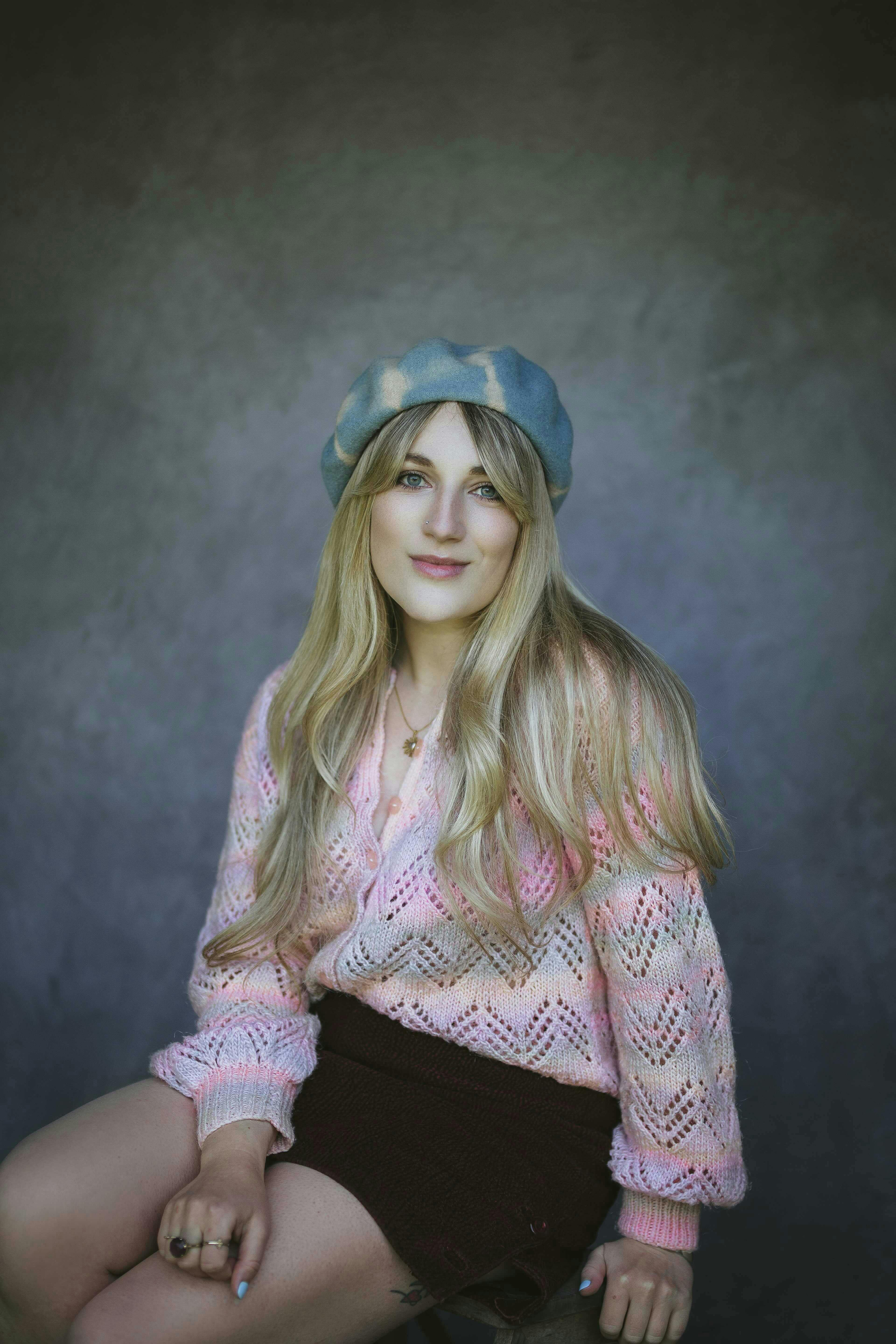
Georgia Taylor-Stidwell: You write a lot about the intense emotionality of shopping, what are your top tips to resist black friday marketing which plays on this?
Lauren Bravo: This is the advice I always give anyone looking to change their shopping habits for the better, but it’s especially appropriate for Black Friday: give your digital wardrobe a spring clean. Unsubscribe from all those fashion marketing emails that nag you into shopping on a daily basis, and unfollow all the influencers that never wear the same outfit twice. Even if we don’t realise it, that marketing plays on our insecurities and implants the idea, consciously or subconsciously, that we have a kind of duty to ‘keep up’ and be continually refreshing our wardrobes. Once upon a time, marketing could only reach us via magazines and TV ads – now we carry those insecurities around in our pockets with us. They’re there every time we glance at our screens, so it’s no wonder we feel so compelled to shop. But once you cut those ties and stop giving brands permission to invade your digital spaces, you’ll be amazed how much calmer and less preoccupied with shopping you feel. If you don’t manage to do this ahead of Black Friday, you could even use it as a way to highlight every single brand you need to break up with – go through each of those emails, scroll to the bottom (quickly!) and unsubscribe. Then breathe.
G: What is your advice to those suffering with the mindset ‘you are only as good as your last outfit’ this friday?
L: That messaging is insidious and so hard to overcome, so don’t beat yourself up if you feel that urge to shop. But remember that the most sustainable garment is the one already in your wardrobe. Chances are you probably have a bedroom stuffed with clothes already, and you’d be amazed how many old items could scratch the same trend itch. So you could try using Black Friday as an excuse for a dressing-up session – pull out all your clothes, style new outfits and rediscover things you’d forgotten you even have. Dare yourself to find new ways of wearing old things. Make a pile of clothes to have tailored, repaired or transformed into a whole new garment. Creativity can be a great antidote to capitalism. Alternatively, unplug for the day (if you can!) and focus on something you love that doesn’t involve your appearance at all. Cook something amazing, go for a walk somewhere beautiful, or phone your friend who doesn’t care about fashion and remember that there’s so much more to you than the way you look.
G: Can you reflect on the intensity with which fast-fashion brands market Black-Friday – I am thinking particularly of the infamous boohoo penny sale from 2020. Why is this so appealing to a consumer?

The Pretty Little Thing ‘Penny Sale’ which sparked outrage last Black Friday (source: www.thesun.co.uk)
L: Fast fashion is a race to the bottom, and at some point over the past 20 years or so, quantity overtook quality as our main priority when it comes to clothes. Consumers have been trained to want more, more, more, to the point where we’ve normalised spending less on a dress than you do on a pizza. And of course it’s a vicious circle – because the more we buy, and the cheaper those clothes are, the more likely we are to get bored, the more likely those clothes are to fall apart or lose their shape within weeks, and the more likely we are to feel we ‘need’ to shop again. Stunts like Boohoo’s penny sale are terrifying but cunning. Because of course we want to acquire the most newness for the cheapest possible price. We’ve been conditioned to believe that newness is everything. They play on the idea of fashion as a fun, frivolous pick-me-up, and create the false illusion that fast fashion is so abundant that it almost has no value at all, like picking fruit off a tree. When of course the truth is that garment workers are paying for those clothes. The planet is paying for those clothes. And even after the stunt has ended, we value those clothes, and the resources and the labour that have gone into them, a little bit less.
G: Is it possible to shop consciously this Black Friday?
L: I think the most powerful thing we can do is not shop on Black Friday at all, so we don’t give the ‘tradition’ more oxygen or add to any brand’s sales reports. If we all simply refused to engage with the marketing at all, Black Friday might finally die a death. However, I think it is possible to shop consciously. If it’s something you’ve thought about carefully in advance, something you absolutely know you will wear and love and keep for many years, then benefitting from a Black Friday discount isn’t the worst thing in the world. And there are usually some great small, sustainable brands using the day as a way to showcase better models of consumption, so supporting those brands is a good alternative. One of my faves, Birdsong, has staged a ‘Transparent Friday’ campaign in recent years, where they broke down the cost of a garment to show exactly how much was being paid to workers, how much was spent on fabric, and how much was used to market the brand and develop the business. We really do vote with our wallets, so if you really must shop on Black Friday, try prioritising BIPOC-owned brands, women-owned brands, queer-owned brands and of course ethical, sustainable brands, to avoid lining any corporate billionaire pockets.
G: How do we break up with Black Friday?
- Unsubscribe and unfollow! Do a sweep of your inbox and social feeds, ahead of time if you can, and get rid of every single brand that might come brandishing a discount code. Fill up your Instagram with sustainable fashion advocates, memes or baby animals instead.
- Fall back in love with the clothes you already own. Play dress up, upload your clothes to Save Your Wardrobe, and rediscover the joy of styling, creating new outfits from the stuff that’s already in your life.
- Get creative! If you have time, start a sewing project or find a local tailor to mend, alter or upcycle your clothes for you.
- Do your homework. Research the brands you’re tempted to buy from (Good On You is a great tool for this), and if they’re not fully transparent, find an ethical alternative. Invest in the people and stories behind your clothes and they’ll mean more to you in the long run.
- Remember: fashion brands spend millions of pounds on marketing, trying to make you feel that you’re only as good as your last outfit. Don’t give them the satisfaction.
Stay tuned for the next instalment of Lauren’s interview!